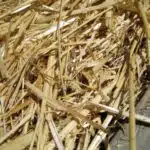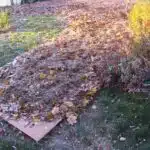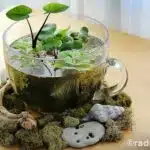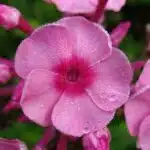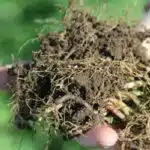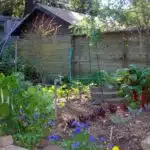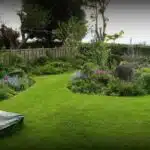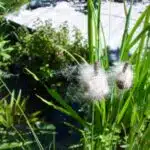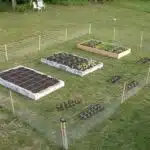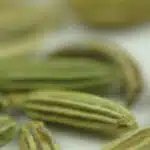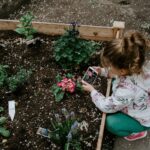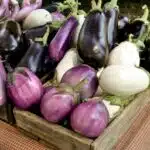Tending an organic garden can be a rewarding endeavor, akin to planting the seeds of success. It may seem daunting at first, but with the right know-how and a little hard work, you can reap a bounty of delicious fruits and veggies that are cultivated in harmony with nature. Here’s how to get started on your journey towards growing an organic garden.
Organic gardening isn’t just about taking care of plants; it’s about taking care of the environment too. By avoiding synthetic fertilizers and pesticides, you will protect wildlife and help create a healthier ecosystem for all species to thrive in. Plus, growing your own fruits and vegetables can be incredibly cost effective and provide an invaluable source of fresh produce for your family.
Gardening organically takes some extra effort but it doesn’t have to be overwhelming if you break it down into manageable steps. From choosing the perfect spot for your garden to selecting plants that will thrive in the space you have available, this guide will walk you through everything you need to know about starting an organic garden from scratch.
Assess Your Garden Space
Getting an organic garden off the ground can be a daunting task, but with the right plan and preparation, you’ll be poised for success. To start, you need to get a lay of the land – figuratively and literally. Assessing your garden space is an invaluable first step in cultivating an organic garden that flourishes.
It’s important to consider the size, condition and shape of your space. How much sun does it get? Are there any existing plants or creatures living in the area? Note how large or small your plot is, whether it needs additional soil or mulch and what type of plants you’ll likely be able to grow in your environment. This will help you develop an effective strategy for planting – which plants should go where – as well as give you insights on how to care for them.
Once you have an idea of what type of garden space you’re dealing with, it’s time to gather the necessary tools and supplies for success. From gloves and shovels to fertilizers, there are several items that can make all the difference between a thriving organic garden and one that doesn’t survive. Understanding what type of materials are best suited for your garden will help ensure that all your hard work leads to success down the line.
Gather The Necessary Tools And Supplies
Once you have assessed the garden space and determined what kind of organic garden to create, it is time to gather the necessary tools and supplies. This includes items such as composting materials, containers, gloves, and a wheelbarrow. It’s also important to purchase organic seeds or seedlings from a reputable source to ensure they are free of chemical fertilizers or pesticides that can harm your plants.
Organic gardening requires specific tools and supplies that are not needed in traditional gardening. For example, organic gardening may require the use of raised beds instead of traditional in-ground planting. In addition, natural fertilizers and pest repellents must be used instead of man-made chemicals. Make sure you have all the necessary items on hand before you start planting so you don’t get stuck in the middle of your project without them.
Organic gardens require more work than traditional gardens but can yield healthier produce with fewer harmful chemicals entering into your soil and food supply. Having everything you need before starting will make the process easier and help you avoid any surprises along the way. With all these items ready to go, you can now select organic seeds or plants for your garden!
Select Organic Seeds And Plants
Choosing organic seeds and plants is an important step in starting your organic garden. Many nurseries and garden stores now offer a range of organic options to choose from. When shopping, look for labels that identify the item as “certified organic” or “organically grown.” This will ensure that you are getting viable, properly grown plants.
It’s also important to consider the growing requirements of each type of seed or plant. For instance, some may require more light than others, and some may need more frequent watering than others. Do your research before making your purchases so you have all the information you need to help each seed or plant thrive in its new home.
When selecting organic seeds or plants, also remember to think about what you’re hoping to grow in your garden. Consider what vegetables and fruits you would like to enjoy from it and pick varieties that are well-suited for the climate you live in. With careful planning and selection, you’ll be off to a great start! From there, it’s time to prepare your soil for planting.
Prepare Your Soil
To get the ball rolling on an organic garden, preparing your soil is a key step. Like a blank canvas ready for a work of art, it’s important to make sure the soil is primed and ready for planting. To start off on the right foot, it’s important to use organic materials like compost and manure to enrich the soil with nutrients.
To give your garden an extra boost, you may want to consider adding some fertilizer as well. There are plenty of options out there that don’t have chemicals or other artificial ingredients – just look for ones labeled as “organic” or “natural.” Adding fertilizer will help the plants thrive and give them all the fuel they need to grow healthy and strong.
The next step before we can start planting is testing the pH balance of our soil. This is essential in order to ensure that our plants can absorb all of their nutrients effectively. If the pH balance isn’t quite where it should be, then we can adjust it with some simple pH testing kits available at most gardening stores. With that taken care of, we’re ready to move onto planting our seeds or plants!
Plant Your Seeds Or Plants
The journey to a successful organic garden starts with the fifth, and often most exciting, step: planting your seeds or plants. This is the thrilling culmination of all your hard work: picking out the perfect flowers and vegetables, preparing the soil, and giving your garden a strong foundation. All that’s left is to take these bright beginnings and watch them grow!
Planting can feel like an intimidating process for first-time green thumbs, but when done carefully it’s actually quite simple. Think about what will thrive in your area and find local sources for your plants or buy sustainable seed packets from stores. Once you have everything ready, just dig into the earth with your hands or a shovel and place the seeds at an appropriate depth before covering them back up and watering gently – voilà!
Now that you’ve put in so much effort, keep an eye on how things progress as you wait for your little sprouts to emerge. With some patience and care, soon you’ll be able to enjoy watching as they blossom into full plants over time…
Choose Natural Fertilizers
Organic gardening is like a delicate dance with nature; choosing the right fertilizers is the choreography. Natural fertilizers are an essential part of growing a healthy, organic garden. They provide the nutrients needed to ensure plants get off to a great start and keep producing throughout their life cycle.
The most common natural fertilizers are made from animal manure, which helps to add nitrogen and other minerals to your soil as it breaks down. These can be purchased in bags or you can make your own, by composting kitchen scraps in a compost bin. Other options include fish emulsion and seaweed extracts, both of which release nutrients slowly into the soil.
For those looking for something more natural and less smelly than manure, there are some great options available such as bat guano or worm castings, both of which work well to provide beneficial bacteria and fungus to help break down organic matter in the soil. With all these choices, you’ll be sure to find one that works for your garden! With a little research and know-how, you’ll be able to create an organic garden that will flourish and provide you with plenty of delicious fruits and vegetables. Moving on from here, let’s consider composting as another way of providing nutrition for our garden beds.
Consider Composting
Ensuring a healthy, organic garden is like composting your dreams of success: it takes time and effort. To achieve your gardening goals, consider composting as the perfect companion to natural fertilizers. Composting is an excellent way to give back to the soil and promote plant growth.
Like a single spark can start a wildfire, composting in your garden can lead to remarkable results. It’s simple: you collect kitchen and yard waste, layer it in the soil, and let nature do its work. Composting helps create nutrient-rich soil with more organic matter that will feed plants and help them grow faster. The extra organic matter will also help retain moisture during dry spells so that you don’t have to water as often.
Composting also has other benefits such as reducing trash sent to landfills, improving soil structure and drainage, suppressing weeds and conserving water, which are all essential for maintaining a sustainable organic garden. With these advantages, it’s no wonder why composting is an important part of any organic gardening plan. In addition to mulching to conserve water and suppress weeds, using compost in your garden will bring it one step closer to becoming successful!
Mulch To Conserve Water And Suppress Weeds
Once you have your organic garden started, it’s important to consider how you can maintain it. Mulching is a great way to conserve water and keep weeds at bay. It involves spreading a layer of material over the soil around the plants in your garden; material such as wood chips, straw, or hay. This layer helps retain moisture and prevents weed growth while also providing nutrients for the plants.
In addition to helping with moisture retention, this layer of mulch also acts as an insulator against extreme temperatures. It keeps the soil cool in the summer and warm during cooler months. This helps protect plants from frost damage and temperature extremes that can damage roots and inhibit growth.
Mulching can also be beneficial in preventing soil erosion; when rain falls, the mulch will help slow down runoff so that water isn’t quickly draining away from your plants’ roots before they have a chance to absorb any of it. So by taking this extra step during maintenance, you’ll be helping ensure that your organic garden stays healthy and thriving for years to come! With these simple steps, you’ll be well on your way to creating an oasis of lush greenery in no time.
Control Insects And Pests Organically
Crawling critters can quickly cause chaos in your organic garden! Controlling insects and pests organically is key to keeping your crops safe. Crafting a comprehensive plan for pest protection will provide peace of mind, so you can enjoy the fruits of your labor without fear.
Firstly, start by researching which bugs are beneficial and which are harmful. Beneficial insects like bees and ladybugs help pollinate plants and eat other bugs, while harmful ones destroy crops and spread disease. Knowing what to look out for will help you accurately assess the situation in your garden.
Next, take steps to create an unfavorable environment for pests while encouraging beneficial bugs. Planting certain crops together can act as a natural deterrent to keep the bad guys away from your vegetables. Additionally, using organic sprays or dusts containing ingredients like neem oil or diatomaceous earth can help rid your garden of unwelcome visitors without harming the environment.
By taking a few simple steps now, you can protect your precious plants from pesky pests in the future!
Keep Your Garden Weed-Free
Weeding is an important and time-consuming part of organic gardening, with the average garden taking up to four hours a week to keep weed-free. This tedious task can be a bit overwhelming, but it’s essential for healthy plants and keeping your garden looking neat. Luckily, there are several ways to make weeding easier and more efficient.
One of the most important steps in keeping your garden weed-free is preventing them from growing in the first place. Regularly cleaning up debris in the area can prevent weeds from finding areas with plenty of sunlight or soil. Additionally, covering bare spots or newly planted areas with mulch can help reduce weed growth by blocking sunlight and creating a barrier between soil and seeds.
Organic herbicides, like vinegar or boiling water, are also effective alternatives to chemical-based products when it comes to getting rid of existing weeds. Just remember that these solutions are strong enough to kill beneficial plants as well, so be sure to use them carefully and sparingly around desirable vegetation. With these tips in mind, you’ll have a much easier time dealing with pesky weeds in your organic garden for years to come! Moving forward, providing adequate watering is also key for successful organic gardening.
Provide Adequate Watering
Water is the lifeblood of a garden, and just like any living organism, it needs to be provided in the right amount. It’s like the old saying goes – you can lead a horse to water, but you can’t make it drink. In the same way, you can provide your organic garden with water, but you have to make sure that it’s taking enough.
When I think about providing adequate watering for my organic garden, I’m reminded of a story from my childhood about a farmer who was trying to irrigate his crops. He had an irrigation system in place that would provide just enough water for his fields at exactly the right times of day. But still, he was having trouble making sure that all his crops were getting enough hydration. After much trial and error, he realized that if he went out early in the morning and manually turned on each sprinkler head by hand every day, he could ensure that each one was providing the correct amount of water every time.
In order to make sure your organic garden is receiving enough water, it’s important to take some steps beyond simply setting up an irrigation system. Regularly check soil moisture levels with your hands or a moisture meter. Make sure you’re using compost and mulch to help retain moisture in the soil. And if possible, install rain barrels or use soaker hoses to conserve water while also providing your plants what they need. Following these steps will help ensure that your organic garden gets all the hydration it needs throughout the growing season.
Hand-Pick Weeds
Weeding is an important part of organic gardening, as it allows the plants to receive the nutrients and water they need. If weeds are left unchecked, they can deprive your vegetable plants of much-needed resources and prevent them from growing and producing healthy fruits or vegetables. Therefore, it’s essential to hand-pick weeds regularly.
The best time to remove weeds is when the soil is moist, after a rainstorm or just after watering. Pulling out weeds by hand ensures that no chemicals are used in the process, which prevents any adverse effects on your plants or the environment. Start by removing large clumps of weeds first and then work your way down to smaller ones. Additionally, make sure you get the entire root system otherwise it will just grow back in a few days.
Hand-picking weeds may require some trial and error but with practice you’ll learn what works best for your garden. After pulling out all the weeds you can see, rake up any remaining debris to ensure that all weed seeds have been removed from the soil. This will help keep your garden free of unwanted vegetation and promote healthy plant growth throughout the season. With proper maintenance, you’ll be well on your way to having an abundant organic garden! Now let’s move on to discussing how rotating crops can help keep a garden healthy.
Rotate Crops
Rotation of crops is an important part of organic gardening. This process involves changing the location of what you plant in your garden from year to year, allowing for different nutrients to be available for each crop planted. This helps prevent soil depletion and ensures that plants are getting the best possible nutrition for healthy growth.
Rotating crops also helps reduce pests in the garden. By changing up the location of where you are planting, it can disrupt any pests that may have taken over a certain area or crop. Additionally, rotating crops can help avoid disease in certain plants by reducing or eliminating the amount of pathogens present in the soil.
Organic gardening requires knowledge and practice when it comes to crop rotation and maintenance. Doing this correctly will help keep your plants healthy and happy, while also providing you with plenty of fresh produce throughout the season.
Practice Crop Maintenance
Coincidentally, as we continue to learn how to start an organic garden, crop maintenance is the next step. It is important to ensure that your crops are healthy and well taken care of in order for them to grow and flourish.
The most important part of crop maintenance is monitoring weeds. Weeds can compete with your crops for nutrients and water, so it’s essential that you keep them under control. Hand-weeding or laying down a layer of mulch can help reduce weed growth. Additionally, you should also fertilize your crops with organic materials such as compost or manure. This will provide them with the necessary nutrients they need for growth.
It’s also important to practice proper watering techniques when it comes to crop maintenance. A general rule of thumb is that plants should be watered deeply and less frequently rather than lightly and more frequently. Too much water can suffocate roots and lead to diseases while too little water can limit the amount of growth a plant gets.
By following these guidelines, you can ensure that your plants receive the best care possible—allowing you to reap the rewards of organic gardening!
Reap The Rewards Of Organic Gardening
Coincidentally, I’ve been looking for ways to make my garden greener and healthier. As it turns out, organic gardening might be the perfect solution! It’s a great way to grow fresh fruits and vegetables while also protecting the environment.
Now that I know how to start my own organic garden, it’s time to reap the rewards. Organic gardening is rewarding in its own right – not only will I be able to enjoy fresh produce from my own backyard, but I’ll also have peace of mind knowing that it’s grown naturally and sustainably. Plus, organic gardening can help reduce my carbon footprint by eliminating harmful chemicals from entering our atmosphere.
With that said, there are many benefits to starting an organic garden – from healthy food and environmental protection to even connecting with nature in a meaningful way. All of these things make this type of gardening well worth the effort!
Frequently Asked Questions
What Is The Difference Between Organic And Non-Organic Gardening?
A garden is a reflection of its gardener, and organic gardening is no different. As the adage goes “you reap what you sow,” and when it comes to organic gardening, this holds true in more ways than one. Organic gardening requires an abundance of patience and dedication to ensure that your plants receive the most natural form of care. So, what is the difference between organic and non-organic gardening?
Organic gardening involves cultivating a garden with only natural materials such as compost, manure, cover crops, or other natural fertilizers. Using these materials creates a healthier soil structure that works better for plant growth, while reducing the risk of chemical runoff into water sources or neighboring gardens. Non-organic gardening relies on synthetic chemicals like fertilizers, herbicides, and pesticides to promote plant growth; however, these can potentially end up being more harmful than helpful. Not only do they damage beneficial insects like bees who pollinate flowers in our gardens but they can also leech into surrounding areas causing potential harm to wildlife or pets in nearby areas.
Organic gardening is not only beneficial for your personal garden but also the environment around it. By using natural products that are safe for both plants and animals alike you can help reduce the amount of toxins released into the air or soil while also creating a more sustainable environment for everyone involved. It’s important to remember that with any type of gardening practice patience is key – be prepared to put in extra work and effort until you get results!
What Is The Best Time Of Year To Start An Organic Garden?
Starting an organic garden can be a rewarding and fulfilling experience, but it’s important to know the best time of year to begin. It varies depending on where you live and what types of plants you are growing, but there are some general guidelines that can help.
Generally speaking, spring is the best time to start an organic garden. The warmer temperatures and wetter conditions are ideal for many seedlings and transplants. Starting in late winter or early spring also gives your plants plenty of time to grow before the heat of summer hits. Additionally, this is when soil temperatures tend to be at their warmest, allowing for optimal germination of seeds.
However, some plants may prefer cooler weather for germination or require more shade than summer provides. If you’re planting these types of crops, consider waiting until fall or even winter to start your organic garden. This will allow those specific crops plenty of time to mature before the extreme heat of summer arrives. In addition, many organic gardeners actually prefer starting their gardens in fall because it makes watering easier due to lower temperatures and higher humidity levels.
No matter what time of year you decide to start your organic garden, it’s important to research which vegetables or flowers will do well in your area so that you can plan accordingly. With a little bit of preparation and patience, you’ll soon have a thriving organic garden!
How Do I Know If I’m Using Organic Fertilizers?
Starting an organic garden is like a journey through uncharted waters: you never know what you’ll encounter. It’s important to know what kind of fertilizers to use when embarking on this adventure. One way to ensure you’re using organic fertilizers is to look for the Organic Materials Review Institute (OMRI) label, which certifies that products are safe and suitable for organic gardening. Additionally, many fertilizer companies have their own certifications.
Organic fertilizers are derived from natural sources like compost, manure, and rock powders. They contain essential nutrients like nitrogen, phosphorus, and potassium that help plants thrive without the risk of toxic chemicals or synthetic additives. In addition, they provide essential micronutrients such as iron and zinc that are often lacking in conventional fertilizers.
Knowing what kind of fertilizer to use is key for successful organic gardening. Researching labels and understanding the different types of organic fertilizers can help you make an informed decision about which one will best fit your needs. With the right knowledge, you can ensure your garden will be healthy and fruitful!
What Type Of Soil Is Best For Organic Gardening?
Starting an organic garden can be like painting a masterpiece – it takes time, patience, and a good understanding of the tools and techniques required. When it comes to soil, it is particularly important to ensure that you are using the right type for your organic garden.
Organic gardening requires soil that does not contain any chemical-based fertilizers or other synthetic additives. It should be a natural mixture of topsoil, compost, peat moss, and sand. This combination will help create an environment that is healthy for your plants and will provide them with all the nutrients they need.
The soil also needs to be well-drained and aerated so that plants can absorb moisture and oxygen easily. It should also have a neutral pH level – not too acidic or alkaline – so that plants won’t struggle to thrive in the soil. By taking the time to research the best type of soil for your specific needs, you can ensure that your organic garden gets off to a great start!
How Often Should I Water My Organic Garden?
Watering your organic garden is a bit like taking care of a delicate infant – you want to make sure it’s done just right. The frequency with which you should water depends on the size of the garden and the type of soil, but generally speaking, you’ll need to water regularly for optimal results.
When watering an organic garden, aim to keep the soil lightly moist at all times. To accomplish this, check the depth of your soil before watering and only add enough to dampen it without soaking it. If you’re using mulch, this can help retain moisture in between waterings. Additionally, be sure to water deeply and evenly throughout the garden every time, allowing each plant to receive its proper share of hydration.
If possible, try to keep up with a consistent watering schedule that works with your lifestyle and climate conditions. In arid or windy climates or during unusually hot or dry spells, though, you may need to increase how often you water your organic garden so that it doesn’t dry out completely. As long as you take the time to properly assess your plants’ needs and adjust accordingly, they should flourish in no time!
Conclusion
In conclusion, organic gardening is a great way to reduce your carbon footprint and enjoy the benefits of homegrown produce. Instead of relying on chemical-laden store-bought products, you can create a vibrant and sustainable garden that provides you with delicious fruits and vegetables. You can start your journey into organic gardening at any time of the year – just make sure to do research on the best fertilizers and soil for your area. And remember, no matter how much you water your organic garden, it won’t grow if you don’t give it love!
Organic gardening can be an intimidating concept for some, yet there are countless resources available to help guide newcomers through the process. If anything, I hope this article has been able to inspire readers to take up the challenge of starting their own organic gardens. Not only will it benefit them in terms of health and sustainability, but also in terms of personal satisfaction from growing something beautiful with their own hands.
The truth is, organic gardening isn’t as hard as “they” made it out to be – all you need is some patience and dedication! So if you’re looking for a fun activity that could potentially save you money in the long run while reducing your environmental impact, then why not give organic gardening a go? There’s nothing better than enjoying the fruits (and veggies!) of your labor!



